PJD York Standard review: a new take on the Telecaster that feels alive in your hands and feather-light on your shoulder
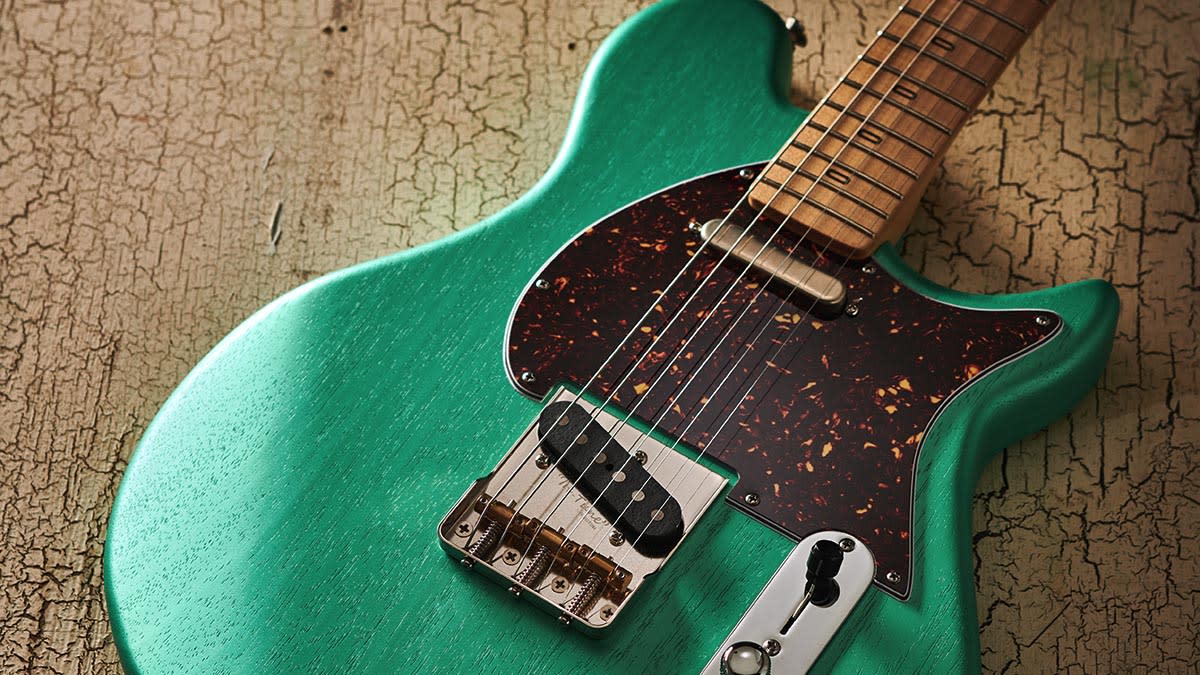
‘Don’t dwell on the past, look to the future’ might well be the motto of PJD Guitars. We’ve been lucky enough to document the company’s ascent via its smartly made small range of electric guitars.
The Carey, St John and Woodford are now joined by the brand’s latest vision, the York, the first new model since the last addition to the Carey family, the stripped‑down solidbody, single-pickup Apprentice that launched a year ago.
To be honest, that’s no surprise because PJD’s founder, Leigh Dovey, has been rather busy. But with that imaginary motto in mind, what does this new addition bring to the table?
In its own way, PJD has so far loosely referenced four of the classics with those previous all-bolt-on models. The Carey, for example, has a single-cut outline, and the Apprentice nods to a single-cut Junior. The Woodford is more S-style, and the most successful St John embraces the offset trend. The York, then, looks to the Telecaster for sonic inspiration but typically puts it through the PJD mangle.
But along with this new introduction, PJD has reconfigured its range. The Standard has always been the start-up PJD, while the Elite models added maple tops and the like.
These were both chambered designs from ash or mahogany. As of now, however, the new Standards, such as our York, are slightly different, primarily swapping the chambered bodies of the previous Standards with a solid but still lightweight obeche that allows ribcage and forearm contouring, whereas the previous version didn’t.
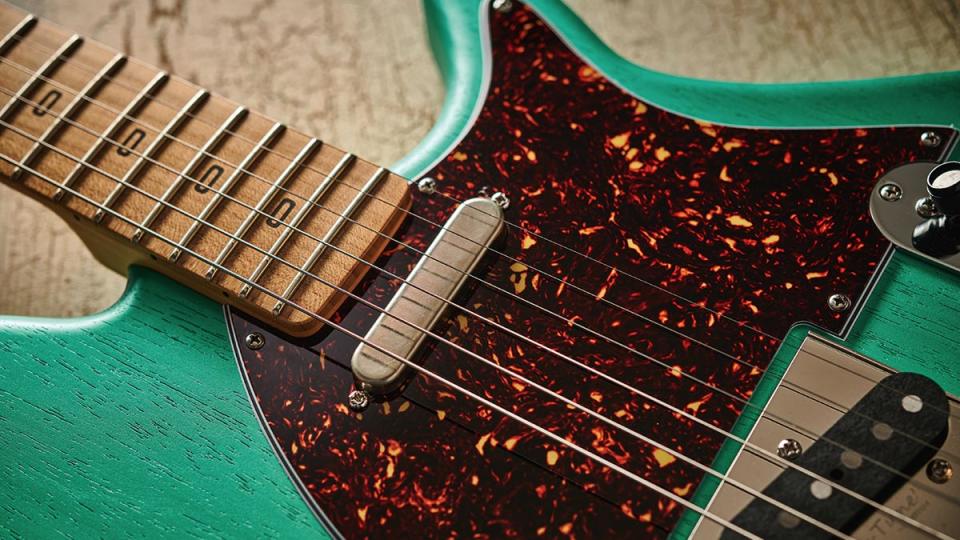
The quarter-sawn roasted maple necks switch to a more classic style with a tinted plain maple that’s flat-sawn (although the diagonal end grain here is what other makers would call rift-sawn), and the subtle 254mm to 305mm (10- to 12-inch) compound radius reverts to a non-compound 254mm (10 inches).
On paper, then, our new York model should be a very different guitar, compared with our well-used original Carey Standard reference. And while it might introduce a new pickup and bridge style, it certainly retains the same lightweight and very crisp, detailed construction that attracted us in the first place.
Obviously, any new guitar outline will generate plenty of discussion and here the upper shoulder of the classic Telecaster is turned into a second cutaway; the treble horn is more LP than T, the heel is very nicely rounded, while the base is much more rounded than its sonic inspiration. Dimensionally, it’s very slightly longer and wider than that guitar, too.
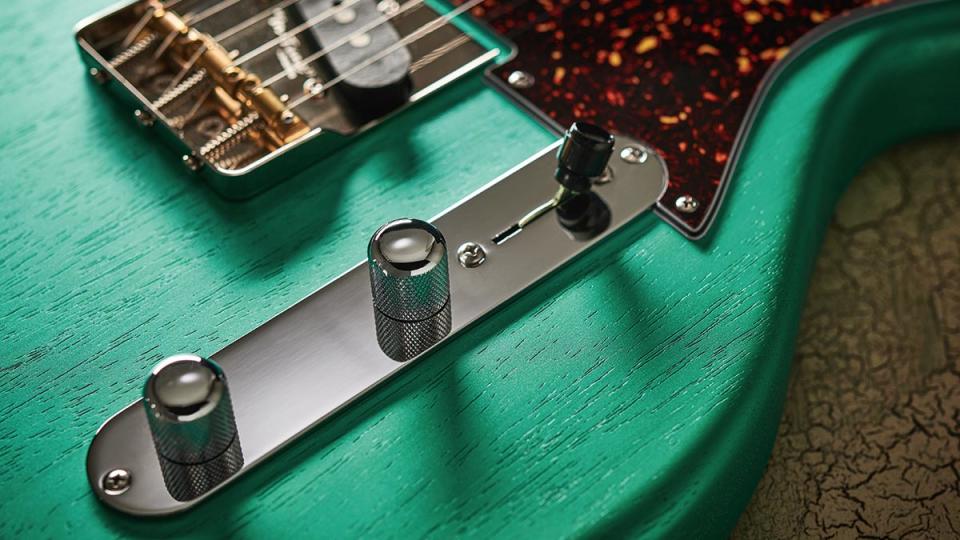
PJD’s clean and functional style is very evident. The 44m thick obeche body is given a satin-y slightly open-pore nitro finish over perfectly sanded wood, and the generous edge radius is almost Nik Huber-esque in its faultless craft. While the neck wood does appear more regular and less boutique-y, it still fixes to the body with actual bolts – not screws – that thread into nuts sunk into the neck back, and there’s now a more classic round access hole for the truss rod adjustment.
The hardware is by Gotoh, as usual for PJD, but it also differs from what was fitted to previous models. While the tuner choice is the superb split-post vintage-style SD91 set (instead of PJD’s favoured six-saddle through-strung bridge), here we get a more T-style affair with relaxed side walls to the bridge plate and three compensated ‘In Tune’ brass saddles. In style, not least with the pickup complement, the York does appear to zone in on its inspiration a little more closely than any of the brands’ other designs.
Another example of that is the Telecaster‑copy control plate, which places the controls – a three-way lever pickup switch, master volume and tone – in the usual positions. But a new introduction here is PJD’s pickups, which are made in-house: as standard, the York comes with the company’s flush-pole High Tea single coils that look as you’d expect for the style.
Feel & Sounds
The first thing you notice is the very light weight. We thought the recent PRS Myles Kennedy was light at 2.81kg (6.2lb), but this is lighter still, weighing in at 2.55kg (5.61lb) and just slightly lighter than the Atkin Boosh OS, which tipped the scales at 2.59kg (5.7lb) and also uses a solid obeche body. Lightweight guitars are clearly becoming the new black!
As you’d also expect, we have a long Fender-style scale length here – like all the other PJD models – though the neck shape has slightly changed from the previous Standard profile. This neck has a pretty classic ‘C’ profile and is slightly thinner and more Fender-like in width: 42mm at the nut and a hair over 51mm by the 12th fret.
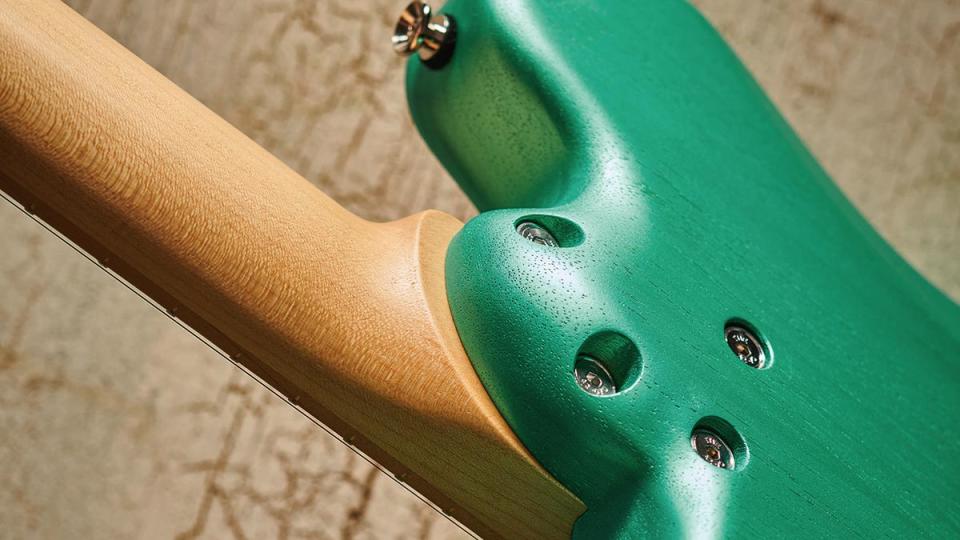
The depth is slightly thinner, too: 20.8mm at the 1st fret and 22.5mm by the 12th. The Jescar FW55090 fretwire is sized at 2.28mm by 1.40mm and is the same across all the PJD guitars; the installation is very tidy, you have perfect domed fret ends, and the fingerboard edges are quite heavily rolled. Overall, as well as having a great setup and nut work, our York is coming across as a class act with a very positive, vibrant feel.
Differences aside, there’s a distinct ‘old Tele’ feel overall to the guitar from that light weight and fast response. Plugged in, the High Tea pickups deliver pretty much what you’d expect and – unlike PRS’s new NF 53 and Myles Kennedy signature – because these pickups are industry-standard sizes, you can easily swap in your own favourites.
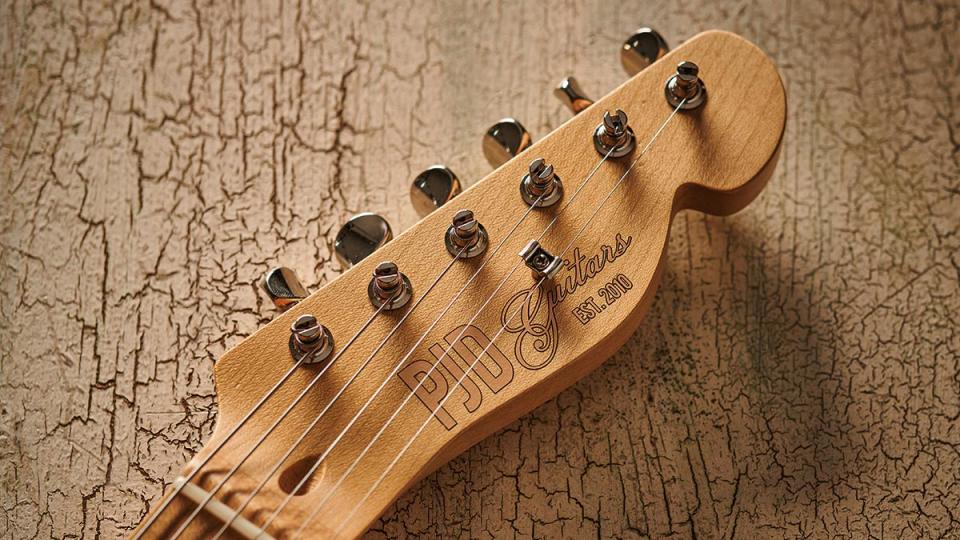
The combination of the construction, pickups and circuit delivers plenty of bright edge from the bridge pickup, with what sounds like a little scoop in the mids, slightly more acoustic-y than our reference ’69 Tele.
While that high-end does need a little taming from the tone control, it adds some sparkle to the full and balanced-sounding neck pickup and the typically wide pickup mix. There’s an alive-sounding vibrancy to the guitar, though, that’s very noticeable, especially with some crunch and gain.
While the High Tea set acquits itself well, we can’t help thinking what a great platform this would be for other pickup styles: a hotter wound P-90-style at bridge (with a cut-off bridge plate, of course) or, more simply, a T-style bridge pickup with a bit more girth. As is, though, it’s the clarity and note separation that’s most evident here, which can apply to plenty of styles, just like its inspiration.
Verdict
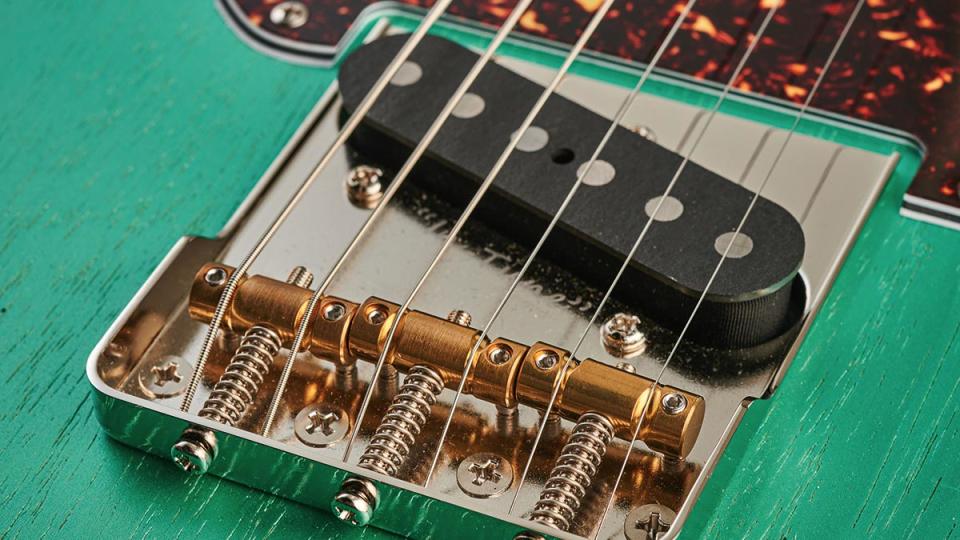
Pretty much every PJD we’ve had our hands on could be described as custom-shop quality but at production-level prices, and the York is no different: an age-old recipe presented in original style but with nothing to take away the flavours you’d expect.
Although PJD does offer lightly aged finishes on certain models such as its Apprentice, there’s no pretence here. The York isn’t trying to be a vintage relic from yesteryear; it’s far from precious in appearance, is very aggressively priced and simply shouts, ‘Get out there and play me.’
It’s not trying to reinvent any wheels, either, but it obviously drops into consideration with probably hundreds of T-styles out there. All we can say when a guitar is built to such a quality standard, is here’s another to add to your list: a slightly different take on a T-style that feels very alive in your hands and feather-light on your shoulder.
Specs
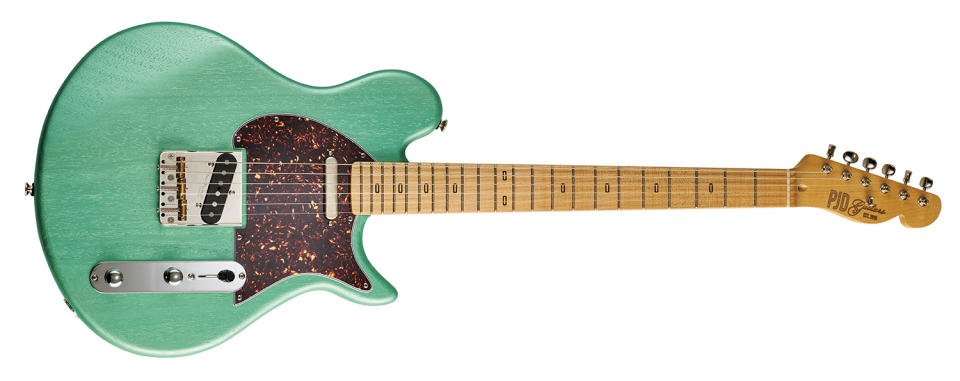
PRICE: £1,299 (inc gigbag)
ORIGIN: UK
TYPE: Double-cutaway, solidbody electric
BODY: Obeche
NECK: Maple, bolt-on
SCALE LENGTH: 648mm (25.5”)
NUT/WIDTH: Bone/42mm
FINGERBOARD: Maple, rectangular black acrylic inlays, 254mm (10”) radius
FRETS: 22, medium
HARDWARE: Gotoh BS-TC1S bridge with brass ‘In-Tune’ saddles and relaxed side w/ through-body stringing, Gotoh vintage-style SD91 split-post tuners – nickel-plated
STRING SPACING, BRIDGE: 54mm
ELECTRICS: PJD High Tea single coils, 3-way lever pickup selector switch, master volume and tone
WEIGHT (kg/lb): 2.55/5.61
OPTIONS: Rosewood fingerboard. Also available with licensed Bigsby (£1,499)
RANGE: The other PJD models (Carey, St John and Woodford) start in the new Standard specification at £1,299. All come with Bigsby vibratos, except the Woodford, which will use a synchronised vibrato (all priced at £1,499). For details of the other levels and prices, check the website
LEFT-HANDERS: To order
FINISHES: Ocean Jade Metallic (as reviewed), TV Yellow, Firemist Gold, Candy Apple Red, Midnight Black, Aspen White and Three Colour Sunburst – low-gloss open-pore nitro body
CONTACT: PJD Guitars

